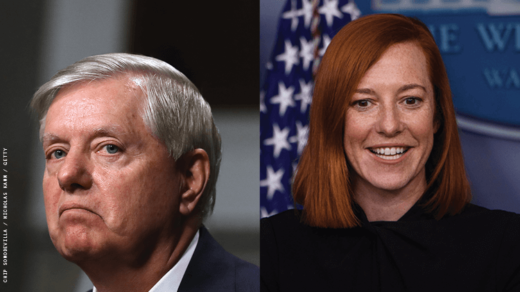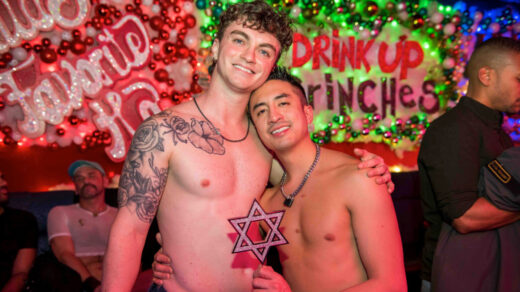Like ‘Schitt’s Creek,’ ‘Pose’ Deserves to Sweep the 2021 Emmys
Author: John Casey

I’m not one for awards shows. Mainly because for a long time, they seemed too white, too male, and not too gay. People assume, because I’m a pop culture and news addict, that awards shows are something I relish. That couldn’t be further from the truth. I’ve always felt and still feel that they are self-aggrandizing.
But that doesn’t mean I don’t watch them. How else would I know that during the last few years, the major awards shows have tried to step up? They seem to have gotten the message and become a little less white and straight, but they still indulge in self-glorification — that’s something that will surely not change.
That increase in diversity is partly due to the fact that streaming services have exploded during the last few years and particularly during the pandemic. The digital outlets have created a need for a steady flow of new and fresh content, and the ability to offer programs and movies that are targeted to specific audiences.
The hits used to come from one of the four networks; then cable outlets like HBO, Showtime, and AMC entered the picture and dominated with Emmy-winning shows like The Sopranos, Homeland, and Mad Men. Now it’s networks versus cable versus streaming, and the war to win has become much more intense with nominees that are much more diverse.
This year, the list of nominees is downright disparate, and as we wrote in July when the nominees were announced, they are super gay and trans. They include Saturday Night Live’s Bowen Yang and Kate McKinnon, The Crown’s Emma Corrin and Gillian Anderson, Hacks’ Hannah Einbinder and Carl Clemons-Hopkins (the first out nonbinary actor nominated), Hamilton’s Jonathan Groff, RuPaul as host and his show RuPaul’s Drag Race, and all five of the fab five from Queer Eye and the show itself.
On the list again is Dan Levy, who scored a nomination for Outstanding Guest Actor in a Comedy Series for his appearance on SNL. Levy, as we all know, and the entire lead cast of Schitt’s Creek took home a crush of Emmys last year, with the show also earning Best Comedy Series. It was a rout for the ages.
Many felt the show swept all of the major comedy awards because the series ended, so television academy voters were giving the series
the recognition it had not received in its previous seasons. I didn’t buy that. Schitt’s Creek was always brilliant, with superb actors and clever writing.
Sure, it helped when the show was available on Netflix, which certainly boosted its profile; however, It never lost its distinctiveness and genius over six seasons. It was a hit from the get-go, and I and many others were sad to see it go.
The same could be said for Pose, which sadly wrapped up this year after its third season. The series was the most meaningful show on television — and personally evocative. Mj Rodriguez, nominated for Best Actress in a Drama, made history as the first out transgender nominee in a lead category, and Billy Porter is up again for Best Actor in a Drama. In 2019 he became the first out gay actor to win in that category. The series itself also made the list for Outstanding Drama Series.
I’m going to go out on a limb and predict — well, more like wish — that Pose will sweep like Schitt’s Creek. And if that happens, perhaps it will be because the academy voters are recognizing it for the groundbreaking, astonishing show that it always was. The Crown will certainly be back next year. The Handmaid’s Tale and This Is Us have run their course. And the final four, Lovecraft Country, Bridgerton, The Mandalorian, and The Boys, just don’t pack the same punch as the others.
Pose isn’t a shoo-in, and certainly it’s not as generic — for lack of a better word — as something like This Is Us, which appeals to a wider audience. Pose’s audience is unique, just like the show and the characters of Porter’s Pray Tell and Rodriguez’s Blanca.
I discovered Pose over two years ago, and I included it in one of my first columns for The Advocate, about the amazing Pride Month of June 2019, when Pose opened its second, critically acclaimed season. What I wrote about the show then still stands today:
Trans people and community members living with HIV “are usually, and predominately, portrayed as sick, sad, struggling, and sullen, sequestered societies that were proverbially predictable and pessimistic. Yes, those elements are still there, because that’s some of the reality. But this clever show presents the enormity of their struggles to today’s generation in a thoughtful, purposeful, and ‘hey I’m trying to be happy just like you’ manner. How can anyone not long to know and wish to appreciate the vicariousness, vibrance — and yes, viciousness of Blanca, Angel, Pray and Elektra.”
Pose was all that and much more, and as the series progressed it became vividly real, with heart and heartache. It could be happy and overwhelmingly sad. It was as entertaining as it was enlightening. And I think all of that is what sets it apart. We got insight not only into people living triumphantly with HIV but also into the fluorescent lives of transgender individuals.
I learned a great deal from the show, particularly about the way I first reacted to those living with HIV and transgender people in my younger, closeted days. Back in the late ’80s and early ’90s, which were the years depicted on the show, I was afraid of anyone who had AIDS and any man (or someone I perceived as male) in a dress. That is hard and terribly embarrassing for me to admit, because my intolerance was inexcusable. I was woefully ill-informed.
After I watched the first season of Pose, I consumed numerous documentaries and books about the AIDS crisis and about the lives of transgender individuals. I wanted to understand as much as I could and figure out why I was so scared of anyone who was different from me. Pose made me realize, for the first time in my life, that at the end of the day we’re all the same, and there was no reason to be terrified.
Being frightened came, perhaps, from seeing so many television shows and news accounts about the death sentence of AIDS and what appeared to be the rage and (erroneous) criminalization of transgender people during that era. And I never took the time to let myself move beyond that fear and truly comprehend all that was underneath.
That is a rare thing for a television series to do, to make people more accepting and to help them understand in a nonthreatening manner. And, isn’t that reason enough for the show to sweep the Emmys this year?
The series was profound, and it will continue to be as long as it’s on Hulu or anywhere else it might be available. If Pose wins, and Porter and Rodriguez win too, that means more people will inevitably watch the show, because they want to see what all the fuss is about. That’s what happened to Schitt’s Creek. The show exploded in popularity after its Emmy sweep.
I am actually looking forward to watching the Emmys this year and seeing all the pride emanate from all the LGBTQ+ nominees. And I’ll be rooting for Pose so that more people will watch the show and come away, like I did, with a clarity about two communities that are so often misunderstood.
John Casey is editor at large for The Advocate.
Original Article on The Advocate
Author: John Casey





